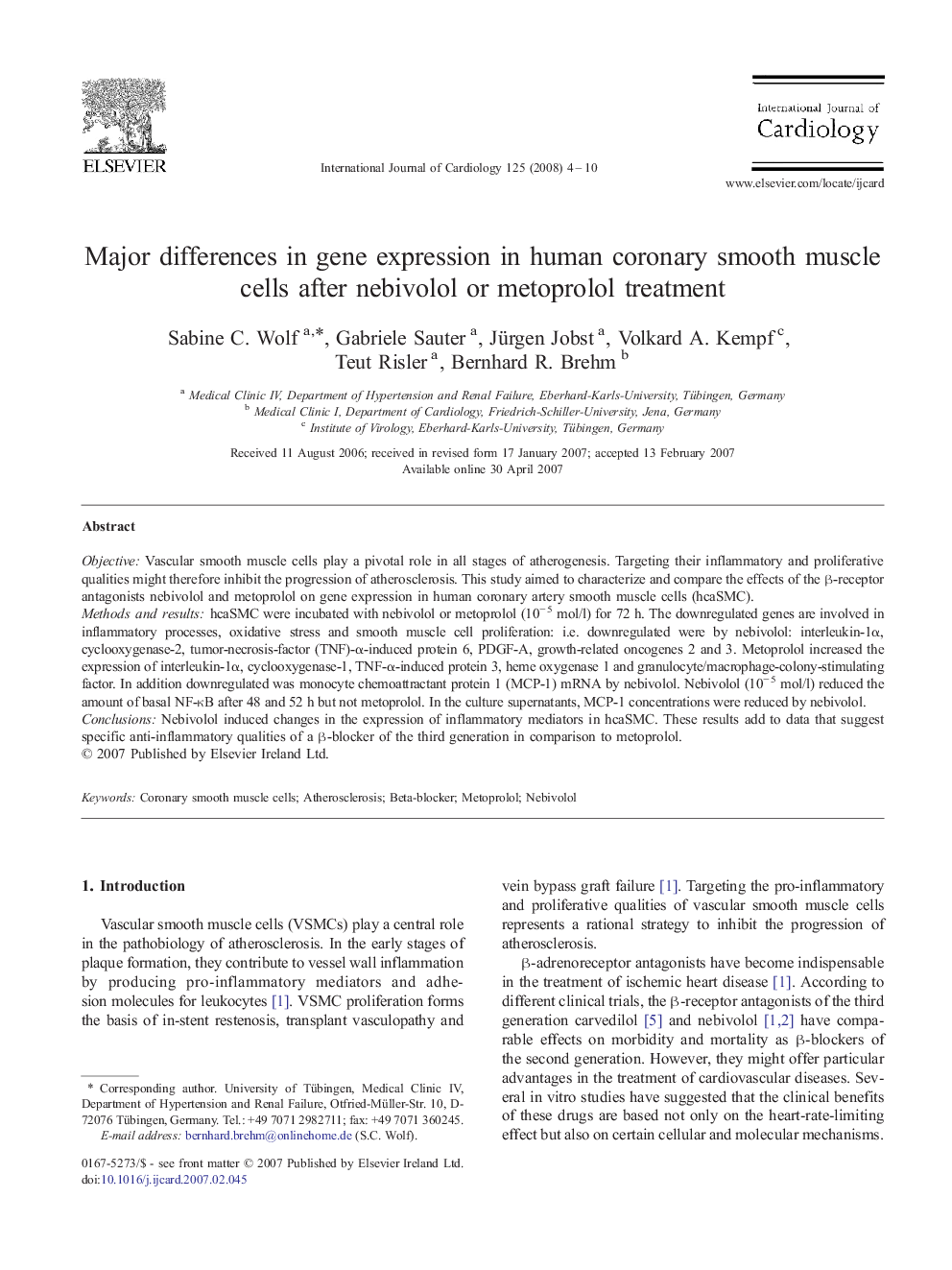| Article ID | Journal | Published Year | Pages | File Type |
|---|---|---|---|---|
| 2934677 | International Journal of Cardiology | 2008 | 7 Pages |
ObjectiveVascular smooth muscle cells play a pivotal role in all stages of atherogenesis. Targeting their inflammatory and proliferative qualities might therefore inhibit the progression of atherosclerosis. This study aimed to characterize and compare the effects of the β-receptor antagonists nebivolol and metoprolol on gene expression in human coronary artery smooth muscle cells (hcaSMC).Methods and resultshcaSMC were incubated with nebivolol or metoprolol (10− 5 mol/l) for 72 h. The downregulated genes are involved in inflammatory processes, oxidative stress and smooth muscle cell proliferation: i.e. downregulated were by nebivolol: interleukin-1α, cyclooxygenase-2, tumor-necrosis-factor (TNF)-α-induced protein 6, PDGF-A, growth-related oncogenes 2 and 3. Metoprolol increased the expression of interleukin-1α, cyclooxygenase-1, TNF-α-induced protein 3, heme oxygenase 1 and granulocyte/macrophage-colony-stimulating factor. In addition downregulated was monocyte chemoattractant protein 1 (MCP-1) mRNA by nebivolol. Nebivolol (10− 5 mol/l) reduced the amount of basal NF-κB after 48 and 52 h but not metoprolol. In the culture supernatants, MCP-1 concentrations were reduced by nebivolol.ConclusionsNebivolol induced changes in the expression of inflammatory mediators in hcaSMC. These results add to data that suggest specific anti-inflammatory qualities of a β-blocker of the third generation in comparison to metoprolol.
